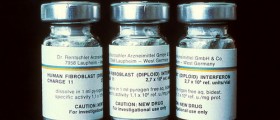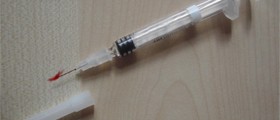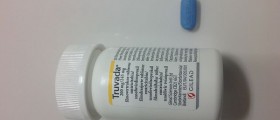
Hepatitis C is a serious infectious liver disease responsible for damage of many hepatocytes, liver cells. The infection is caused by the Hepatitis C virus, a virus easily transmitted after a contact with the blood of the infected individual.
Hepatitis C and Liver Damage
The problem related to hepatitis C is that infection can be asymptomatic allowing its further transmission and progressive liver damage which is detected once the organ loses most of its functions.
Even though there are several ways of disease transmission, the most common one is through sharing needles with an infected person during illegal drug use.
Hepatitis C Clinical Characteristics
In early stages the infection is usually asymptomatic. If there are symptoms or signs, these are generally mild and flu-like. So, patents may complain about fatigue, transitory fever, nausea, loss of appetite, muscle/joint pain and tenderness in the upper right part of the abdomen (the area where the liver is located). Since most of these symptoms and signs are not characteristic, they are generally neglected and one may not consult his/her health care provider.
Ways of Transmission
The only way to contract Hepatitis C virus is to come in a contact with contaminated blood.
Until blood and organ transplants started to be screened for Hepatitis C virus (and other viruses) many people who had received infected blood eventually ended up with the infection. Today, thanks to thorough screening, this way of transmission is practically impossible.
The infection can be also contracted after sharing needles (intravenous drug users) or after an accidental prick with the needle which has been contaminated with the infected blood. Accidental needle pricks are frequent among medical personnel.
Finally, the infection can be contracted during unprotected sexual intercourse and is also possible to be transmitted from the infected mother to her baby during childbirth.
Hepatitis C Prevention
When it comes to people who need to receive blood transfusions, they should not worry about the virus because there is impeccable control over blood specimens which are administered in this purpose.
People who use intravenous drugs are supposed to stop using drugs. If this is not possible, they should use their own sets and never share needles with other drug users.
Major care should be taken regarding body piercing and tattooing. They are only supposed to be done in reputable salons and shops with clean and sterile equipment.
By practicing safe sex and with proper protection one can prevent hepatitis C but also avoid contracting many of different sexually transmitted diseases. The best way to avoid all of the mentioned is by using a condom.

















Your thoughts on this
Loading...